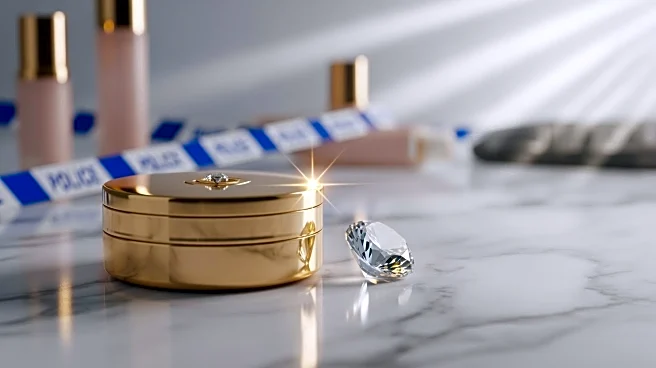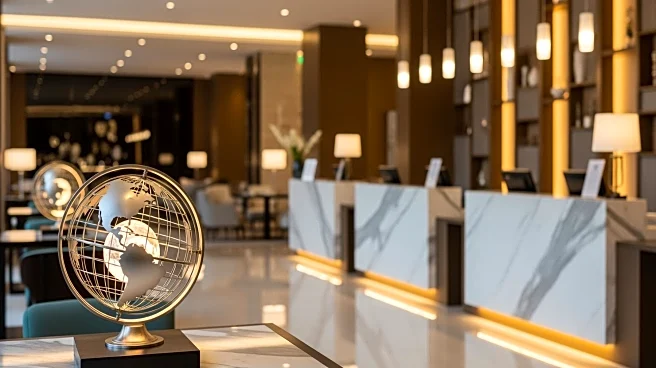What's Happening?
L'Oréal has announced the acquisition of Kering's beauty brands and licenses for $4.6 billion. This strategic move includes high-profile names such as Gucci, Creed, Bottega Veneta, and Balenciaga. The
acquisition aims to enhance L'Oréal's luxury beauty segment, leveraging its existing success with brands like Yves Saint Laurent. Kering's decision to sell its beauty division comes after a period of underperformance, with Gucci sales down 25% and overall group sales down 15%. The sale is part of a broader strategy by Kering's new CEO, Luca de Meo, to refocus on its core fashion business. L'Oréal plans to expand the distribution networks for these brands, which currently have limited presence in fashion houses' stores and e-commerce sites.
Why It's Important?
This acquisition is significant for L'Oréal as it strengthens its position in the luxury beauty market, a sector that has been growing rapidly. By acquiring long-term licenses for prestigious brands like Gucci, L'Oréal can leverage its marketing expertise and distribution networks to drive growth. The deal also highlights the challenges faced by fashion houses like Kering in managing beauty divisions, which require specialized knowledge and resources. For Kering, divesting its beauty business allows it to concentrate on its fashion arm, potentially improving its financial performance. The acquisition could impact competitors like Coty, which currently holds the Gucci beauty license until 2028, as L'Oréal prepares to take over.
What's Next?
L'Oréal will focus on expanding the distribution and marketing of the newly acquired brands, particularly in regions like the Middle East where luxury fragrance markets are growing. The company will also prepare to take over the Gucci beauty license from Coty in 2028, which may lead to strategic shifts in Coty's operations. Kering, now unburdened by its beauty division, will likely accelerate its efforts to innovate and streamline its fashion business. Analysts expect L'Oréal to continue consolidating its leadership in luxury beauty, potentially seeking further acquisitions to bolster its portfolio.
Beyond the Headlines
The acquisition underscores the ongoing consolidation in the luxury beauty sector, with major players securing long-term licenses to ensure sustained growth. It also reflects the broader trend of fashion houses reevaluating their business models, focusing on core competencies while outsourcing specialized areas like beauty. The deal may influence other luxury brands to reconsider their strategies, potentially leading to more partnerships or divestitures in the industry.









